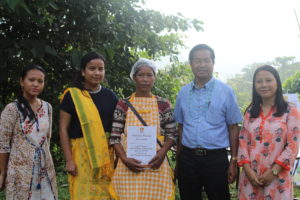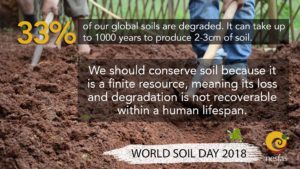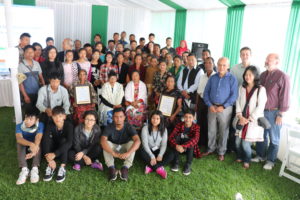To promote the sale of locally produced and chemical free products, Shaining Nongrum, headman of Laitsohpliah community (East Khasi Hills), inaugurated a farmer’s store at the community on Tuesday.
The store is an initiative of the Participatory Guarantee System (PGS) farmer groups of Laitsohpliah in association with the North East Slow Food and Agrobiodiversity Society (NESFAS). It aims to encourage farmers to increase the production of chemical free products, to provide a platform for marketing of traditional food and local authentic products directly sourced from farmers.
Nongrum said, “The Farmers’ Store aims to support small producers with a fair price for their produce, to enhance forward linkages for traditional food and local authentic products.” He added, “It will also help educate consumers about the origins of products and to facilitate and to appreciation of uniquely grown, designed or handmade products.
An exchange visit among members of other communities was also held on the same day. School students, teachers and PGS members from Cham Cham (East Jaintia Hills) (EJH), Musiaw (West Jaintia Hills) (WJH), Iooksi (WJH), Mupyut (WJH) Skhenpyrsit (WJH) Samanong (WJH), Mulum (WJH), Mukhap (WJH), Pynthor (WJH), Ksehrynchang (WJH), Langshonthiang (West Khasi Hills) and Nongwah (East Khasi Hills) were also present at the community.
The school students and teachers visited the school garden at the Laitsohpliah Upper Secondary school. Theilinda Bareh, teacher at Samanong LP School, said, “In our community, the school garden there has been facing many problems such as heavy rains, fencing and above all, the students are very young. Hence, it is very difficult to manage the garden. But we have to put in a lot of effort to get through it.”
Brinsing Nongrum, teacher at Iooksi Govt LP School, said, “It is through the encouragement and persistent programme by Society for Urban & Rural Empowerment (SURE) that our shcool has also started the school garden recently. We have also started using the vegetables in our mid day meal programme.”
The communities from East and West Jaintia Hills that visited Laitsohpliah are NESFAS’ partner communities who work under SURE.
Pius Ranee, NESFAS senior associate, said, “Laitsohpliah is one of our oldest partners. It has always been receptive to many of our programmes. We did not come here just to observe the school gardens, but to also reflect and learn, and come up with ideas on how do we make our own school gardens a better place.” He added, “At NESFAS, we are very concerned about the sustainability of transfer of local knowledge.”
Recently, the Directorate of Education, Government of Meghalaya had announced to make School Gardens a compulsory programme for schools.
A drawing competition was also held in the evening for the students under the theme ‘Our Environment’.



